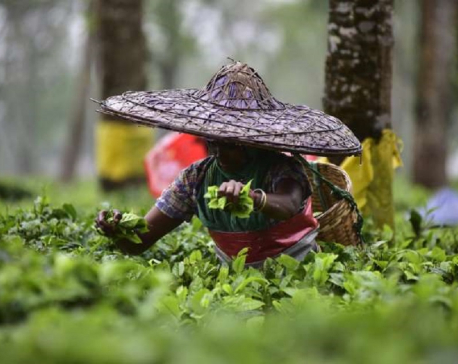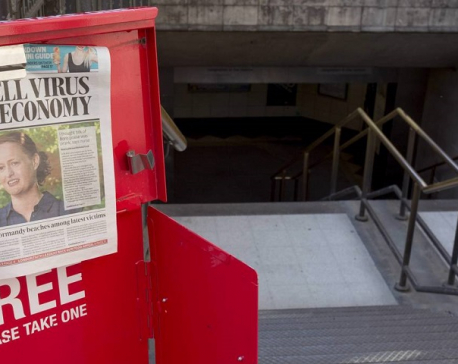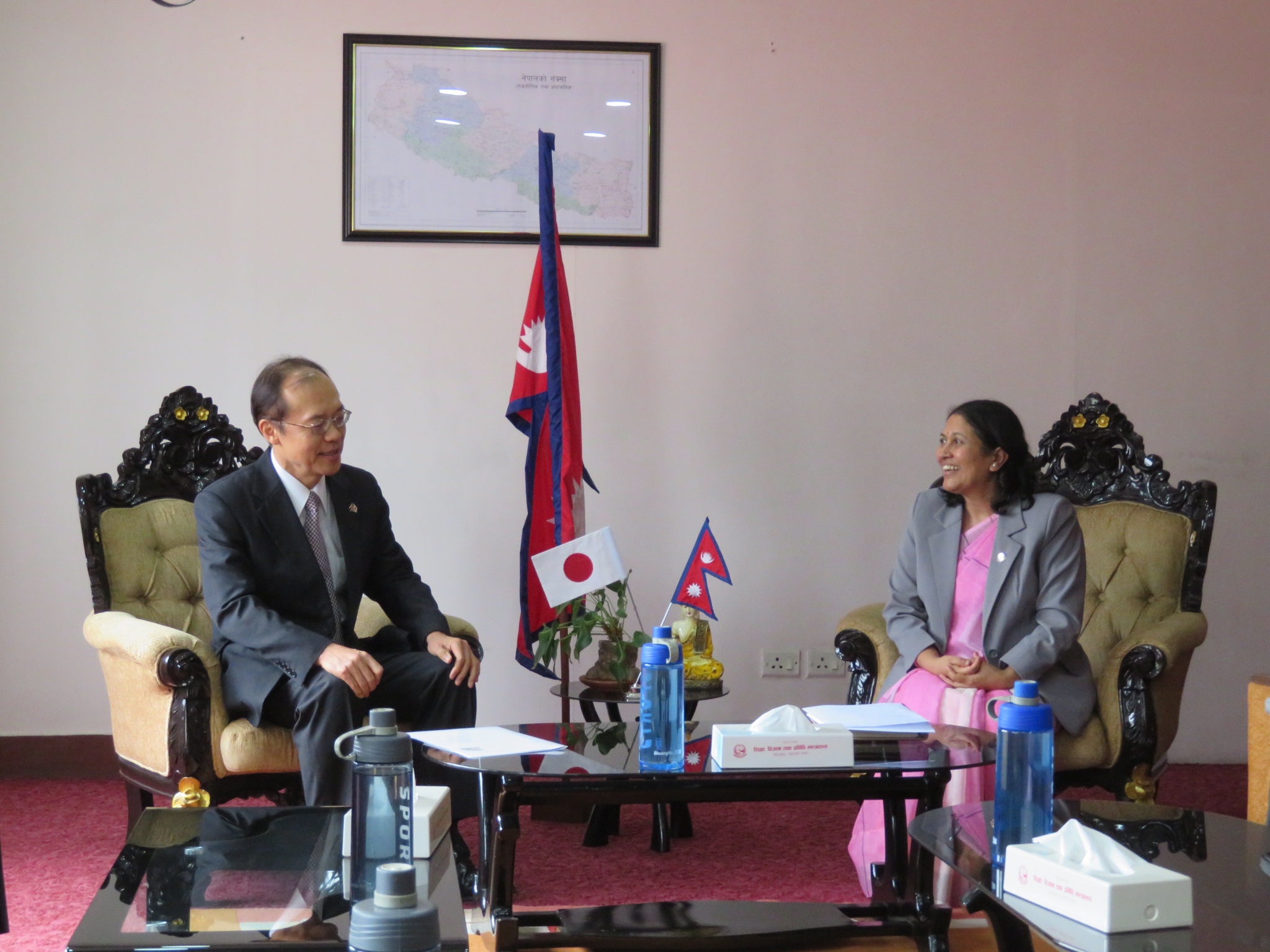
OR
How the pandemic will disrupt project lifecycle
Published On: May 4, 2020 01:23 PM NPT By: Prabhakar Ghimire
_20200504133551.jpg)
Nepal can lose investments from FDI source countries for they are highly likely to hold back their overseas investment decisions. Investment proposals and negotiations with investors are going to drop.
There have been many analyses worldwide about the effects and possible effects of Covid-19 in social, economic, cultural, education, and public health sector. Economists have also discussed the multi-dimensional impacts of Covid-19 in Nepal, most of them based on assumptions or available rough data. This article is mainly focused on how this pandemic is going to affect the lifecycle of development projects in Nepal. Generally, large-scale projects pass through five phases: project conceptualization, project planning (feasibility studies), construction, operations, and handover under the project lifecycle.
During the conceptualization phases, stakeholders should be massively involved to brainstorm their idea and raise concerns for appropriate decision-making. This crucial phase is going to be hampered by this global crisis due to the restricted mobility of investors and standstill in necessary investment negotiations on their project proposals with host country authorities. As Nepal is highly dependent on foreign direct investment (FDI) to fund large-scale projects, we are going to lose such engagements with investors for a long time because the investors' home countries themselves are desperately in need of investment. Most of the FDI source countries such as China, India, the USA, the UK, and France are fighting Covid-19 and suffering huge economic loss due to loss in production, employment, trade, and public revenue. This crisis has prompted many such countries, which are the leading sources of FDI for Nepal, are making attractive plans to encourage their domestic businesspeople for investment. Those countries want to bounce back to normal through many stimulus packages to make business more lucrative for them compared to other investment destinations, in the coming years. Nepal can lose such investors, for they are highly likely to hold back their overseas investment decisions turning back to domestic opportunities. Thus investment proposals and negotiations with investors are going to shrink significantly in the coming days.
Project planning or study—another phase of the project lifecycle—is also witnessing significant setbacks due to the Covid-19 crisis. The government will be compelled to divert its significant chunk of budget to the social sector, main health from development budgets. Implementation of crucial projects will see the budget while upcoming project implementation timelines have differed. For at least one year, project planning and studies will see a kind of lull in the implementation of infrastructure projects. Domestic investors are also on wait and see mood while international investors are with multiple options for investments. If we see a pause in planning for investment in major development projects, then its impact will not be limited within one or two years. It will take us years to win back the confidence of investors.
The construction period is also highly sensitive during project implementation. The construction activities in a project involve a huge number of people, equipment, construction materials, and many social and environmental issues that need to be handled in a strategic way. For Nepal, heavy construction equipment and other vital tools, as well as materials, must be imported. The supply chain of those components is going to be disrupted leading to the scarcity of such goods because the exporter countries themselves are witnessing problems in production and supplies. Even domestic suppliers are also gravely impacted by this crisis. Some of them have been forced to shut their shutters. Due to uncertainty in construction activities, projects will face a tough time to rearrange their human sources which have already broken up and scattered.
Such disruptions in construction activities of major projects will leave multiple impacts on the national economy. The Central Bureau of Statistics (CBS) has forecast meager 2.27 percent of economic growth this year mainly due to Covid-19 and its multifaceted economic consequences. The World Bank also has made a similar estimation of Nepal's economic growth. Disruption in the implementation of such critical projects leaves a lasting impact on infrastructure developments. National Planning Commission (NPC) officials have publicly stated that Nepal would lose the opportunity to graduate from the least developed country status by 2020 due to the economic impact of the Covid-2019. Releasing its twice-a-year-regional update' South Asia Economic Focus' recently the World Bank has anticipated a sharp economic slowdown in all South Asian counties (including Nepal) caused by halting economic activity, collapsing trade, and creating greater stress in the financial and banking sectors. Nepal's agriculture, tourism, infrastructure projects, trade, financial sectors are among the key sectors that are highly affected.
The operation phase, which is very significant in terms of projects' revenue generation, will also face similar fate with the disruption in construction phases. The timeline for the operation of the project will be broken up leading to uncertainty in the generation of revenue through the business. Not only time overrun, but the cost overrun will also afflict the overall project lifecycle in the coming days.
The last phase of the project lifecycle is handover after an operation in a certain concession period. The impact of disruption in all above mentioned four phases will ultimately impact the process of handover of the projects to the concerned government by the project developer.
Way forward
The next couple of years will be a very tough time for Nepal to cope with challenges related to development projects. However, there are ways to minimize the effects. Nepal government needs to revive the sentiment of international investors who will look for the best among the available investment destinations. Peer countries which have been concentrating their efforts to attract FDI will further intensify their attempts by offering more lucrative packages to investors. To compete with those destinations, Nepal needs to come up with attractive offers along with policy and legal reforms for easing doing business. Similarly, the government should strengthen its efforts to promote investment by mobilizing diplomatic missions abroad by not only organizing promotional events but also directly approaching the key potential investors to convince that Nepal is sincerely willing to welcome their investment and make a more investment-friendly environment. Similarly, to avert the possible situation of the crunch of supply materials in the development projects, the government should make efforts to speed up the process of importing such materials at least for the vital projects. In the upcoming budget, the government should announce a stimulus package to boost the business sentiment to promote investment. To encourage domestic investors the government should adopt a prudent fiscal measure that can ease the process of credit to the potential domestic investors. The United Nations Conference on Trade and Development (UNCTAD) has recently estimated that flow of global FDI would shrink by a whopping 30 to 40 percent. The government should also concentrate its efforts to promote small scale investments or start-ups, which can be materialized through favorable credit and financing policies targeting domestic investors. As the World Bank has suggested in its 'South Asia Economic Focus' report, Nepal needs to set the stage now for fast economic recovery. And businesspeople themselves should also explore the business opportunities that have been created by this health crisis and make plans themselves before approaching the government for incentive packages.
You May Like This

Forgotten folks
Crises have a differential impact depending on pre-existing vulnerabilities. The Covid-19 pandemic-triggered lockdown in Nepal has hit daily wage workers... Read More...

The Coming Greater Depression of the 2020s
NEW YORK – After the 2007-09 financial crisis, the imbalances and risks pervading the global economy were exacerbated by policy... Read More...
_20200621105320.jpg)
China’s economic crossroads
BRISBANE/NEW YORK – Back in 2013, the Chinese government laid out a policy agenda that promised real reforms to an... Read More...











Just In
- Japanese envoy calls on Minister Bhattarai, discusses further enhancing exchange through education between Japan and Nepal
- Heavy rainfall likely in Bagmati and Sudurpaschim provinces
- Bangladesh protest leaders taken from hospital by police
- Challenges Confronting the New Coalition
- NRB introduces cautiously flexible measures to address ongoing slowdown in various economic sectors
- Forced Covid-19 cremations: is it too late for redemption?
- NRB to provide collateral-free loans to foreign employment seekers
- NEB to publish Grade 12 results next week








Leave A Comment